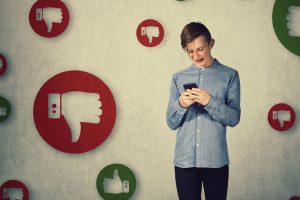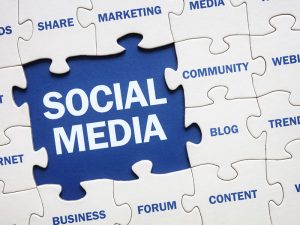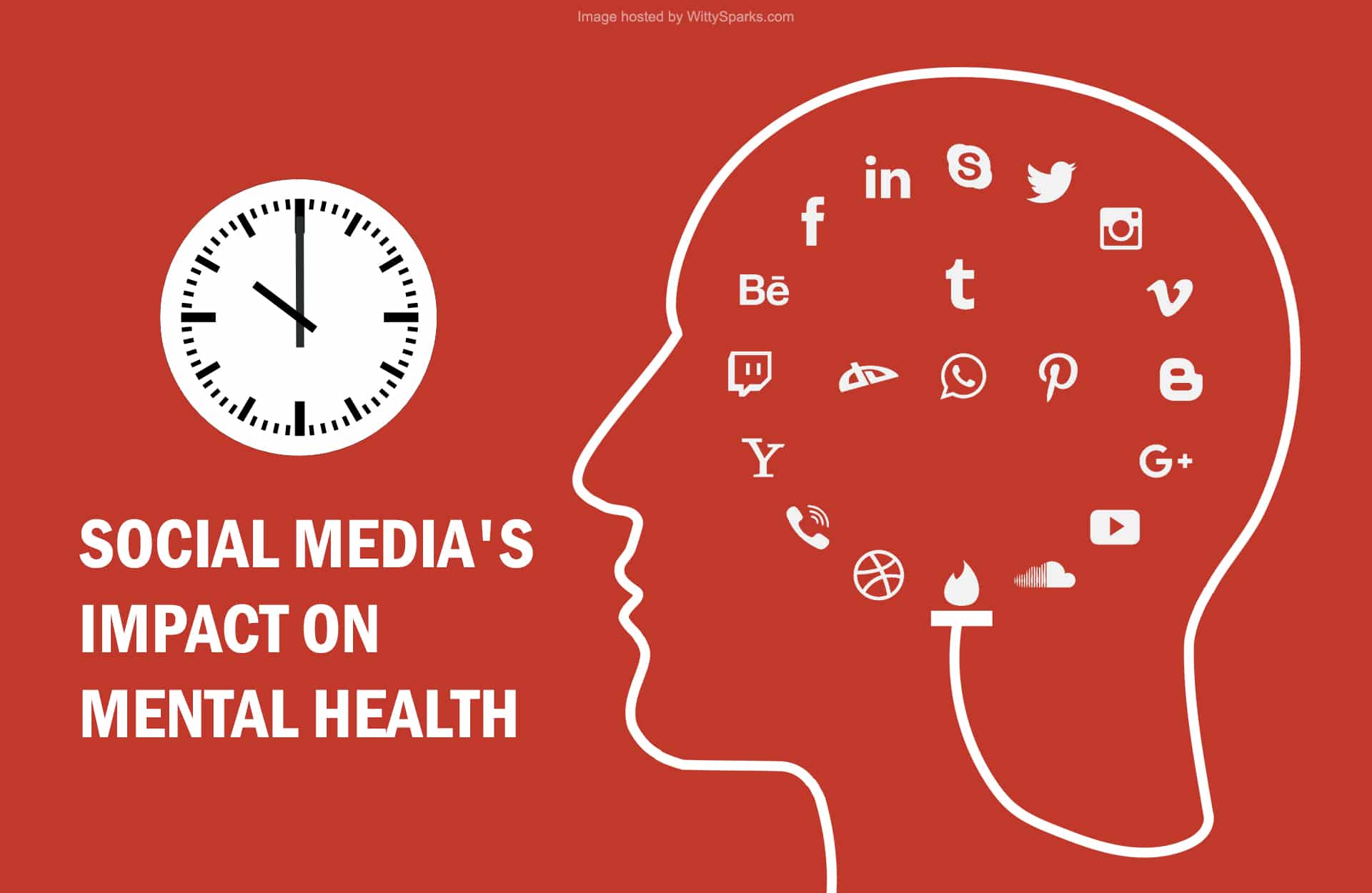Social media has ingrained itself into our lives and transformed how we communicate with one another and ourselves. Most of us now use our cell phones or tablets to access social media. While staying in contact is convenient, it also makes social media always available.
This constant, high-speed connectivity can lead to issues with impulse control, impact your ability to concentrate and focus, interfere with your sleep, and make you dependent on your phone. Social media sites are made to hold your interest, keep you online, and make you frequently look for updates. It is how businesses generate revenue. But social media use can induce psychological cravings, much like a gambling booze or compulsion or an addiction to nicotine or narcotics.
Dopamine, the “reward” hormone released after successful gambling, eating chocolate, or smoking, can be released in the brain when you receive a like, a share, or a positive response to a post. Even if it starts to impact other areas of your life negatively, the more you’re compensated, the more time you want to be on social media. But unfortunately, the platforms are linked to bodily ailments like depression and anxiety and are made to be addictive.
In the United States, social media is used by 81% of teenagers and 69% of adults, according to the Pew Research Center. This increases the likelihood that a significant portion of the population will experience anxiety, depression, or illness due to using social media. Now, Is there a connection between social media and Mental Health? We’ll find out below.
Impact of Social Media on mental health
Humans are a friendly species of animal. We need each other’s companionship to thrive in life, and the strength of our relationships greatly impacts how happy and healthy we are. Social connection has been demonstrated to relieve stress, anxiety, and depression, boost self-esteem, bring comfort and joy, prevent loneliness, and even lengthen life.
On the other hand, a lack of established social bonds might substantially jeopardize your mental and emotional well-being. Many people today use social media sites like Facebook, Twitter, Snapchat, YouTube, and Instagram to interact with one another. While each has advantages, it’s crucial to remember that social media can only partially substitute face-to-face interaction.
The hormones that reduce stress and make you feel happier, healthier, and more optimistic are only released when you are in direct physical touch with other people. Ironically, social media, meant to unite people, can make you feel more alone and isolated, aggravating mental health issues like anxiety and melancholy if you spend too much time using it.
Social media is a “security blanket” for many of us. We reach for our phones and open social media whenever we experience anxiety, awkwardness, or loneliness in a social setting. Of course, using social media only prevents you from having face-to-face interactions, which can reduce nervousness.
There are many healthy ways that social media can help you remain connected and support your well-being even though it doesn’t have the same psychological advantages as face-to-face interaction.
The Negative Impacts of social media

While social media sites offer many advantages, such as sharing knowledge, interacting with people, and learning new things, they can also harm our behavior and mental health. Heavy use of social media has been linked in numerous studies to higher rates of depression, anxiety, loneliness, self-harm, and even suicidal ideation. Social media could help spread harmful events like:
Self-absorption
Social media can lead to unhealthy self-centeredness and keep you disconnected from real-life relationships if you post endless photos and all of your private thoughts there. You feel insufficient in your existence or appearance. Even if you are aware that the pictures you see on social media have been altered, they may still cause you to feel insecure about your appearance or the circumstances of your own life.
However, it still makes you feel envious and unsatisfied when you scroll through a friend’s Photoshopped pictures of their tropical beach vacation or read about their exciting new job advancement.
Social media obsession and fear of missing out (FOMO)
FOMO, or the dread of missing out, can keep you returning to social media. FOMO will trick you into thinking many things can wait or require an immediate reaction. For example, you may be concerned that you’ll lose out on the conversation at school or work if you don’t catch the newest news or rumors on social media. Or you fear your relationships will suffer if you don’t like, share, or comment on other people’s articles immediately. Alternatively, you might be concerned that you’ll decline an offer or that others are having a better time than you.
FOMO can cause you to pick up your phone repeatedly to check for updates or to react compulsively to every alert. This happens even if doing so jeopardizes your safety and the safety of others while driving, prevents you from getting enough sleep at night, or forces you to prioritize social media interaction over real-world connections.
Isolation
According to the University of Pennsylvania research, frequent use of Facebook, Snapchat, and Instagram does not help people feel less lonely. In contrast, the researchers discovered that cutting back on social media can improve your general well-being and make you feel less lonely and isolated.
Depression and anxiety
Maintaining human mental wellness requires face-to-face interaction. Making eye contact with someone who cares is the quickest and most efficient technique to reduce stress and increase happiness. Suppose you prioritize social media activity over in-person connections. In that case, you are more likely to suffer from mood disorders such as anxiety and depression.
Cyber-bullying
Approximately 10% of kids on social media report being bullied, and many other users encounter nasty comments. Facebook and other social media platforms can serve as hubs for disseminating hurtful rumors, lies, and abuse that can cause long-lasting emotional wounds.
Read Also: The dangers of using social media and technology addiction
Positive Impact of Social Media
Social Media, however, has some good sides and deserves some accolades. Using social media lets you:

- Stay in touch and informed with loved ones all over the globe.
- Make new friends and join new groups; connect with others with similar goals or interests.
- Join or support deserving causes; spread the word about crucial problems.
- During difficult circumstances, look for or provide emotional support.
- Find a crucial social link if you, for instance, live in a remote area, have little freedom, suffer from social anxiety, or belong to a marginalized group.
- Find a way to convey yourself and your creativity. Then, find (carefully) sources of practical knowledge and learning.
How To Know if You’re Addicted to Social Media
There is no set time spent on social media, the frequency with which you check for updates, or the quantity of posts you make that suggests your use is becoming unhealthy because everyone is different. Instead, it concerns how much time you spend on social media, your reasons for using it, and how it affects your mood and other parts of your life. For instance, using social media may be problematic if it makes you ignore in-person relationships, keeps you from completing tasks at work or school, or makes you resentful, angry, or depressed.
Similarly, it might be time to reevaluate your social media usage if you only use it because you’re lonely or bored or want to share something to irritate or make others jealous. Unfortunately, your use of social media increases as these signs get worse, which feeds the vicious cycle.
The following are signs that your mental health may be being negatively impacted by social media: spending more time online than with pals in person.
Lack Of Social Interaction
Most of your offline social interaction is now replaced by social media. Therefore, you need to continuously check social media, even when you’re out with friends, frequently motivated by feelings that others may enjoy more than you are.
Making unfavorable comparisons to others on social media
You have a bad body image or poor self-esteem. You might even engage in disordered eating habits.
Victims of Social Harassment
Perhaps you are concerned that you have no control over what others write about you—being preoccupied with your job or school. You experience pressure to frequently post about yourself, receive feedback or likes, or retweet and remark on your friends’ posts.
No time for Self
You spend all your free time on social media, leaving little to no time to ponder your identity, thoughts, or the reasons behind your actions. These things help you develop as a person. You have a dangerous behavior to increase likes, shares, or favorable comments on social media. You engage in scary pranks, share embarrassing content, cyber-bullying, use your phone while driving or in other hazardous situations, etc.
Insomnia
Do you monitor social media when you go to bed at night, when you wake up in the morning or even both? Your slumber can be disturbed by the light from phones and other electronics, which can harm your mental health.
Symptoms of anxiety or melancholy are getting worse
After using social media, you feel more anxious, depressed, or lonely rather than as though it has helped to lessen destructive emotions and improve your mood.
How To cut Social Media Addiction
Step 1: Cut back on Internet time
According to a 2018 University of Pennsylvania research, limiting daily social media use to 30 minutes significantly lowers feelings of anxiety, depression, loneliness, difficulty sleeping, and FOMO. We can still gain from limiting the amount of time we spend on social media, even though 30 minutes a day may not be a feasible goal for many of us, let alone a complete “social media detox.” Cutting social media can be achieved if you:
Utilize an app to keep tabs on your daily time on social media
After that, decide how much you want to decrease it. For example, turn off your phone while driving, in a meeting, at the gym, eating dinner, interacting with pals in person, or spending time with your children.
Don’t bring your phone into the lavatory
Never use a computer or phone in bed. Instead, devices should be turned off and left to charge overnight in a different area.
Disable the alerts for social media
The constant buzzing, beeping, and dinging of your phone informing you of new texts is difficult to ignore. You can reclaim control of your time and attention by turning off your notifications.
Limits tests
Limit your phone scans to once every 15 minutes if you habitually do so every few minutes. Limits tests. Limit your phone scans to once every 15 minutes if you habitually do so every few minutes. Then every half-hour, then every hour. Some applications can effectively restrict your phone access times.
If you want only to monitor Facebook, Twitter, and other social media sites from your tablet or computer, try removing social media apps from your phone. Try removing one social media app at a time to see how much you miss it if this seems too dramatic.
Step 2: Shift your attention
Are you replacing real life with social media? Is there a more wholesome alternative to your use of social media? Invite a buddy out for coffee instead if you’re feeling lonely, for instance. Do you feel depressed? Go for a stroll or exercise. Bored? Embark on a fresh pastime. While social media may be quick and handy, there are frequently better, more efficient methods to sate a craving.
Your experience on social media will be very different depending on why you’re using it, such as if you’re looking for specific information, checking on a friend who’s been sick, or sharing brand-new pictures of your children with family. So the next time you access social media, take a minute to consider why you’re doing it.
Also, remember that nobody’s life is ever as flawless as it appears on social media. Even if we decide not to share it online, we all experience heartbreak, self-doubt, and regret.
Step 3: Spend more time with people you know offline
To be content and healthy, we all require the companionship of others in person. Social media is an excellent instrument for fostering in-person connections when used effectively. Set aside time every week to communicate with peers and family in person. Please make it a frequent gathering where you always turn off your phones.
Reach out to an old acquaintance (or an online friend) if you’ve neglected your in-person relationships and make plans to meet up. Offer to go on chores or exercise together if you have busy schedules. Join a group. Find a pastime, a creative project, or a fitness practice you like, and join a community of like-minded people who meet frequently. Avoid letting your social timidity get in the way. There are tried-and-true methods to get over shyness and form relationships. For example, invite a coworker to lunch, a friend from school, or your neighbor to join you for coffee.
Step 4: Show your appreciation
Feeling and expressing appreciation for the significant aspects of your life can provide a welcome respite from the resentment, hostility, and unhappiness that social media can occasionally breed. Take some time to think. Consider using a gratitude app or maintaining a gratitude journal. Keep a list of all your wonderful experiences and blessings and the objects and people you’d miss if they disappeared overnight.
You can even express your appreciation on social media if you vent or post negative things. Still, private contemplation away from the prying eyes of others is more beneficial.
Conclusion
Health professionals frequently claim that seating has replaced smoking. Sitting is among the worst things we can do for our health, given the variety of illnesses it has been connected to and the number of people it seems to kill yearly. But perhaps more alarming is what we frequently do while seated: mindlessly perusing our social media accounts whenever we have a few minutes to spare.
Even though social media has many advantages, knowing how it may affect our behavior and mental health is crucial. Setting limits on our usage, prioritizing in-person interactions, and being aware of our emotional reactions to the material we consume are all crucial for maintaining a healthy connection with social media. This is not to say that social media has no value; it helps us reconnect with people we’ve lost contact with and maintains our connections across great distances.
However, it is better to log on to social media when you have some free time or need an emotional boost.

